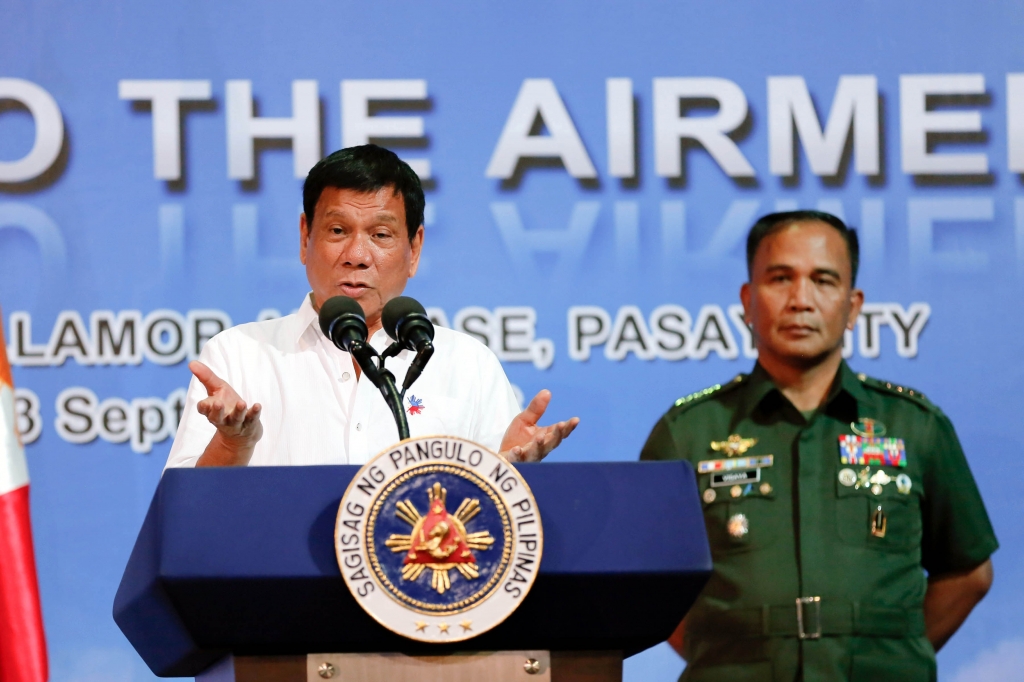-
Tips for becoming a good boxer - November 6, 2020
-
7 expert tips for making your hens night a memorable one - November 6, 2020
-
5 reasons to host your Christmas party on a cruise boat - November 6, 2020
-
What to do when you’re charged with a crime - November 6, 2020
-
Should you get one or multiple dogs? Here’s all you need to know - November 3, 2020
-
A Guide: How to Build Your Very Own Magic Mirror - February 14, 2019
-
Our Top Inspirational Baseball Stars - November 24, 2018
-
Five Tech Tools That Will Help You Turn Your Blog into a Business - November 24, 2018
-
How to Indulge on Vacation without Expanding Your Waist - November 9, 2018
-
5 Strategies for Businesses to Appeal to Today’s Increasingly Mobile-Crazed Customers - November 9, 2018
Philippine ‘hit-man’: I heard Duterte personally give orders to kill people
Numerous others were garroted‚ burnt ‚ quartered and then buried at a quarry owned by a police officer who was a member of the death squad.
Advertisement
He also said that other opponents of Duterte were garroted, burned, quartered and then buried in a quarry while others were dumped at sea to be eaten by fish.
Edgar Matobato made many such startling revelations before a Senate committee that is conducting an inquiry against the alleged extra-judicial killings ordered by Duterte.
Matobato’s claims, which have not been independently confirmed, linked President Duterte and his son, Paolo Duterte, to a list of crimes worthy of a gangster film.
Government officials have forcefully rejected the allegations, with Justice Secretary Vitaliano Aguirre calling the man’s testimony “lies, fabrications and a product of a fertile and a coached imagination”, Reuters reports. About 900 died in police operations and the rest authorities say were “deaths under investigation”, a term human rights activists say is a euphemism for vigilante and extrajudicial killings.
“Had you gone further up, we would have killed you because we were already in an ambush position”, he told de Lima at the resumption of the hearing. He claimed Duterte once unloaded two magazines from an Uzi submachine gun into an agent with the National Bureau of Investigation because the agent accidentally blocked the squad’s cars while members were on a mission.
“Mayor Duterte was the one who finished him off”, he said.
Living up to his nickname, Duterte’s presidential campaign vowed to bring back capital punishment and give security forces the right to “shoot to kill”.
The self-confessed hitman alleged that in 2007 a suspected kidnapper was fed to crocodiles in the southern province of Davao del Sur.
“Our job was to kill criminals like drug pushers, rapists, snatchers”, he said. That’s what we did.
Duterte photographed with soldiers during his visit to the Philippine Army headquarters.
Hundreds of people have died amid President Duterte’s war on drugs and it is likely thousands more will be killed before the campaign ends.
The United Nations and United States have expressed concern about his latest crackdown.
Matobato said Mr. Duterte also ordered the death squad to kill De Lima, when she chaired the Commission on Human Rights and was investigating the mayor’s possible role in the extrajudicial killings in Davao in 2009. “They are sadists”, he said, describing how the victims were strangled.
“Then we’d remove their clothes, burn the bodies and chop them up, ‘ Matobato said, adding that he had personally killed ‘about 50” people.
‘I don’t think he’s capable of giving a directive like that, ‘ Duterte spokesman Martin Andanar said.
Nograles ran twice against Duterte in the 1992 and 1998 mayoral elections, but lost both times. The UN and rights watchdogs roundly denounced his comments.
He said that there was “no showing” that Matobato’s life is in danger and that his testimony at the Senate on Thursday did not have anything to do with the spate in extrajudicial killings attributed to the government’s war on drugs, the original subject of the Senate committee’s investigation.
Advertisement
Duterte has immunity from lawsuits as a president, but de Lima said that principle may have to be revisited now. She said she saw the testimony as a step toward truth and justice for victims of the president’s alleged purges, past and present.





























